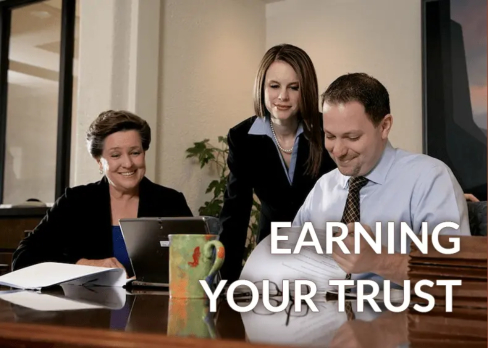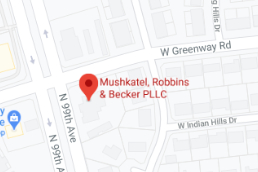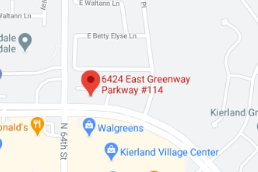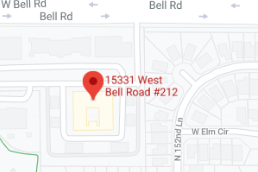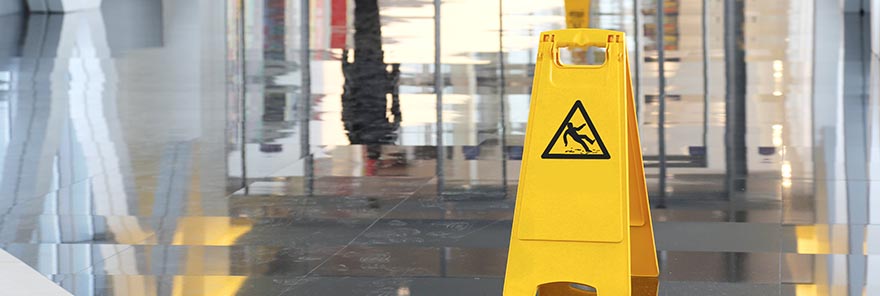
If you were injured by an unreasonably dangerous condition on another person’s property in Sun City or in a nearby community, you may have the right to seek compensation through a premises liability claim. Under Arizona law, your ability to recover damages would depend on many factors, including your status as a visitor and whether the property owner or occupier had notice of the dangerous condition. To learn more about your legal rights, contact Mushkatel, Robbins & Becker, PLLC. An experienced premises liability attorney from our firm can meet with you right away in a free consultation and conduct a careful review of your case. Simply call or connect with us online today to get started on your case.
What Duty Did the Property Owner Owe to You?
When you meet with a premises liability lawyer at one of our firm’s offices in Scottsdale or Sun City, you should plan on discussing why you were on the property at the time of your injury. This is because Arizona is one of the few states in the country that uses a visitor’s status to determine the duty of care owed by a property owner or occupier. (An occupier would be a tenant or lessee.)
In our state, visitors fall within the following categories:
Business Invitees
You would fall into this category if you were invited to the property for a business purpose connected to the owner or occupier.
- For example, you were a customer in a store or restaurant, a guest at a hotel, or a tenant in an apartment complex. The owner or occupier would have owed a duty to make a reasonable inspection of the premises and to fix or warn about any dangerous condition that could have harmed you.
Public Invitees
The duty owed to a public invitee is similar to that of a business invitee. You would fall into this category if the property was held open to the public for a certain purpose, and you were on the property for that purpose.
- For instance, you were swimming at a public pool or playing in a city park.
Licensees
You would fit into this category if you were invited to the premises by the owner or occupier for a social purpose.
- For example, you were attending a party at a friend’s home. The owner or occupier would have owed a duty to warn you about any dangerous conditions that would not have been obvious to you such as a covered hole in the yard.
Trespassers
If you went onto the property of another without any permission, you would be in this category. Generally speaking, if you were an adult, the owner or occupier would have only owed a duty to refrain from intentionally harming you.
However, these categories are not always as neat and tidy as they may seem.
For instance, you may have initially gone onto another person’s property as an invitee. However, if you stayed too long or went into an area of the property where you were not invited – for instance, you were a restaurant diner who walked into the kitchen – your status would change to being a trespasser. Also, the duty owed to child trespassers is slightly different than the duty owed to adults. In particular, if there is a potentially dangerous artificial condition on the property such as a swimming pool, it may be deemed an “attractive nuisance.” If a property owner knows or has reason to know that children are likely to trespass on the property, the owner would have a duty to take reasonable steps to protect the children from that danger.
Did the Property Owner Have Notice of the Dangerous Condition?
As our law firm works on your case, we will also focus on whether the evidence establishes that the owner or occupier had notice of the unreasonably dangerous condition. This is a contested issue in many Arizona premises liability claims.
In Arizona, notice of dangerous conditions may be found where an owner/occupier or its employees:
- Created the condition
- Actually knew of the condition
- Should have known of the condition, in the exercise of reasonable care, because the condition had existed for a sufficient length of time.
For example, let’s say an employee in a grocery store dropped a soda bottle that sprayed liquid onto the floor of an aisle, exposing visitors to the risk of a slip-and-fall. The store owner could be deemed to have notice of this unreasonably dangerous condition because the employee created it and actually knew of the condition. Let’s say a customer dropped the soda bottle. The store could be deemed to have noticed if the puddle of spilled soda remained in the aisle for a significant period of time. (After all, an employee likely should have noticed it.)

What Are Examples of Premises Liability Cases?
Many different types of cases fall within the area of premises liability law. The three types of cases that our law firm most often encounters are:
- Slip-and-fall accidents – When an unreasonably dangerous condition causes a visitor to slip, trip and fall. Examples are spilled liquids, cracked or uneven sidewalks or parking lots, or floors that have loose tiles or frayed carpet. Falls can also be caused by broken stairs or defective handrails.
- Swimming pool accidents – When a private or public pool owner allows accidents and injuries to occur due to the failure to maintain decks, ladders, fences, diving boards or pool drains or the failure to monitor the water for bacteria or hazardous chemicals.
- Negligent security – When a property owner or occupier fails to take reasonable steps to prevent foreseeable criminal activities on the property or otherwise fails to provide reasonable security measures such as door locks and lighting in parking lots.
It is important to have your case reviewed by an experienced attorney from our legal team in order to determine whether your case falls within the area of premises liability law or a different area of personal injury law.
What Damages Can You Recover in a Premises Liability Lawsuit?
The legal team of Mushkatel, Robbins & Becker, PLLC will work hard to seek full and fair compensation for you in your premises liability claim, including:
- Past and future expenses of medical care, treatment and services
- Lost earnings and any decrease in your future earning capacity
- Pain, suffering, discomfort, disability and disfigurement
- Mental anguish
- Loss of enjoyment of life
- Loss of love, care, affection, companionship and other aspects in your marital or family relationships.
Please keep in mind that your own negligence may be a factor that could reduce the amount you recover in a premises liability claim. For instance, if you were injured by what is considered to be an “open and obvious” condition, it may be a factor in your case.

